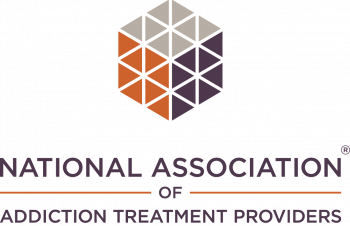Overcoming substance abuse is something to be celebrated. While you should be thrilled with your progress, there might still be challenges ahead. Staying in recovery is a lifelong process. Ongoing therapy can help reinforce the lessons you learned in rehab while helping you avoid a relapse. TruHealing Gaithersburg offers various therapies that can be beneficial to individuals working hard to remain sober.
Cognitive-Behavioral Therapy (CBT)
Cognitive-behavioral therapy is a form of psychotherapy that can be useful for helping people dealing with an addiction. Counseling sessions with clients focus on exploring underlying issues that likely contributed to their drug or alcohol addiction. The client and therapist set goals on what they wish to achieve in therapy.
One of the benefits of cognitive-behavioral therapy is that it helps people become more present in moments. Addiction can alter individuals’ perceptions to the point where they are responding to events as they see them in their minds, not as they happened. Cognitive-behavioral therapy helps clients achieve emotional clarity and recognize how negative thinking may be impacting their chances at success.
The client receives exercises to practice alone. They return to sessions with notes about their experiences. The goal is to open up more in-depth conversations about different aspects of the client’s life and how they can work on changing things for the better by doing a better job of managing their emotional reactions.
Dialectical Behavior Therapy (DBT)
Dialectical behavior therapy teaches clients problem-solving strategies and skills that help them do things like:
- Gain more control over their emotions
- Develop better communication skills
- Deal with stress more effectively
- Stay present in every moment
- Handle negativity without self-destructing
Many people with a substance use disorder struggle with thoughts of self-harm or suicide. They may worry about their ability to remain sober and not let down their friends and loved ones. Dialectical behavior therapy allows individuals to walk through various experiences that may have influenced their descent into addiction.
The structured environment of a dialectical behavior therapy session gives clients the chance to practice more positive behavior. One of the most important aspects of DBT is that it moves beyond the rigidity of black and white thinking. Clients can feel safe exposing their inner thoughts to the therapist while learning how to change for the better.
Family Therapy
Many families find themselves tested by the challenges put forth when a member is struggling with addiction. Family therapy programs provide an opportunity for everyone to start rebuilding broken trust and find emotional healing. Family therapy can include those related by blood or anyone for whom the clients feel that kind of emotional bond, including:
- Friends
- Sponsors
- Life partners
- Extended family members
- Mentors
- In-laws
- Stepchildren
Having a therapist there to observe and guide discussions can help family units get past mistrust and betrayal issues. There can be hope for a resolution for long-unresolved issues and frustrations that may have played a role in a client’s addiction.
Reach Out to TruHealing Gaithersburg Today
At TruHealing Gaithersburg, we believe in taking a holistic approach to help clients with addiction. No one therapy or treatment works for everyone. Clients may benefit from a combination of different counseling sessions, including group therapy, while working on recovery. You can continue with therapy services even after leaving a rehab center.
Men and women get the opportunity to participate in same-sex group sessions when they enroll in our men’s rehab program or our women’s rehab program. Individuals with co-occurring substance use and mental health disorders can also find value in our many therapy services.
Contact TruHealing Gaithersburg today at (833) 625-0398 if you need additional support for your addiction recovery efforts.









